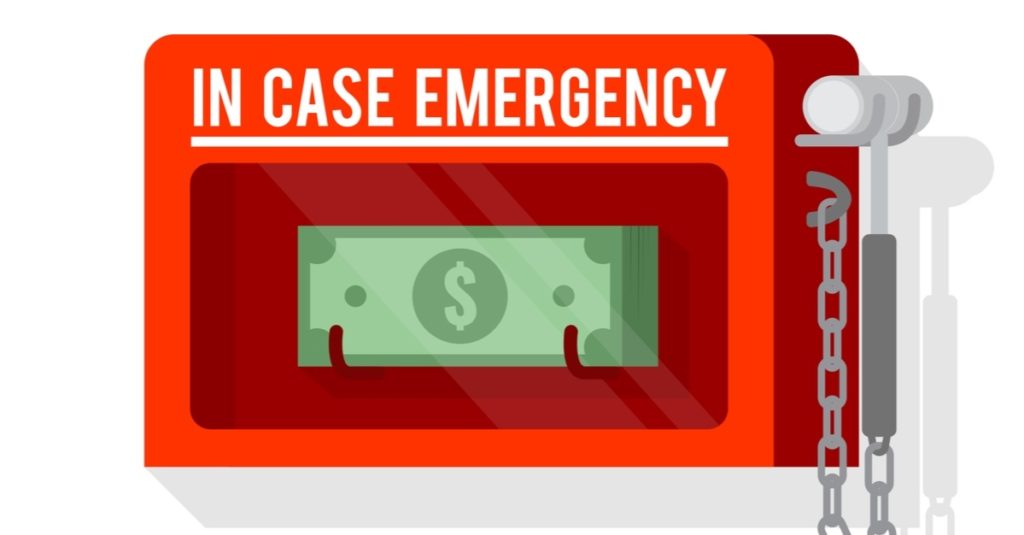Blog
Prepare for Financial Emergency

A virus sweeps the globe and threatens the life of millions of people. This virus is very contagious and is not alive. Its symptoms can be trouble breathing, a high temperature, coughing and even death. However, some people are asymptomatic. As a result, plenty of people don’t know if they have it or if others have it. In a panic, a nation decides to shut down non-essential businesses and many people are out of work and don’t have money for food or essential items. The nation is awarded a single stimulus check for financial assistance and then struggles to survive amidst this pandemic. This is the result of Coronavirus, or COVID19. Some of the effects can be found on moneyfit.org. An unforeseen occurrence, of which, some outcomes could be avoided. One of them is the financial strain on Americans. Let’s focus on how to prepare for financial emergency.
What is a Financial Emergency?
According to an article on Big Picture Loans , it is an unexpected expense that, if not dealt with promptly, can have immediate serious consequences. They typically occur within the categories of Home, Health and Work. We’re going to focus more on the latter two. The virus mentioned earlier has left many people jobless and wondering how they’re going to care for their families.
Work
Losing your job can be heartbreaking. It can lead many people who were once fine, into deep feelings of anxiety and depression. Not just due to the worry of paying their bills, but also the feeling of ineptitude. It can take anywhere between 3 months to a few years to obtain another job to sustain you financially. And in some cases, families may have to downgrade from the lifestyle they may have grown accustomed to.
Health
Health issues are often unexpected. One could go to bed and feel great but have a stroke in the morning due to blood clots. You can experience health complications from a virus that is currently plaguing the world or have family members who are affected by this. But in both scenarios, you can prepare for financial emergency.
Create an Emergency Fund
What is an emergency fund? It’s a source of ready CASH in case of an unplanned expense, an illness, or the loss of a job. The categories mentioned earlier constitute emergencies. In some cases, you may have a credit card or two or feel that if an emergency arrives you can go to your local bank and obtain a loan. However, it’s wise to prepare for financial emergency before you need it as it may not be readily available to you when you actually need it. During this pandemic, many financial institutions have increased their credit criteria to amounts that only someone with excellent credit or a very balanced DTI (Debt-to-Income) ratio can acquire. This puts a dent in many people’s plans for financial relief.
Emergency plan when possible
I once worked with a client who had recently bought a new house and cleared all her credit card debt along with her spouse’s. She had a mortgage with available equity and a new car which she paid a note on which bought her total monthly debt to $2600. As she didn’t have an emergency fund, I recommended accessing her equity with a line of credit. This was a great option for her as she would not pay interest on the credit line unless she needed to use it. She declined my offer and said she wouldn’t need it.
Four months later, we met again to discuss loan options. During those four months, she had her basement renovated. Then she and her spouse had more of the house renovated. Her spouse’s car started to break down and after spending a few thousand dollars on repairs, they decided to obtain a new car for him. All of this debt she paid by means of credit cards until she now had 13 credit cards all maxed out.
This greatly affected her credit report as she went from monthly payments of $2600.00 to $4600.00 among 16 different accounts. She had also missed payments at this point and wanted to consolidate her debt and have one low payment. She applied and was declined. Had she obtained the line of credit 4 months prior when recommended, she would have been approved and had monthly payments totaling $2900 due to the rate being much lower and payments being stretched across a 20 year repayment period for a HELOC.
Expect the Unexpected
This is an interesting but true scenario. Financial emergencies can befall us in many ways. It can be health, home, work or something else. It would be wise for us to set some money aside as often as we can even it it’s very little. If you typically buy lunch every day when you go to work, you likely spend $15 a day and $75 a week on lunch. That may not sound like much, but annually, that’s $3600. That’s a nice amount of money to have for an emergency fund. How about bringing lunch to work instead? For every day that you bring lunch, set aside the money you would have spent on lunch into an account designated for emergency funds. In this way, you have started the process to prepare for financial emergency.
Not everyone can contribute as much and your situation may differ. But having an emergency fund will help you avoid the pitfalls of financial strain during an emergency. Some who had an emergency fund were able to continue with their daily lives financially when they experienced loss of job. It can be done, but it does take effort.
For more financial guidance, why not visit our blog at CloudSwipe?
